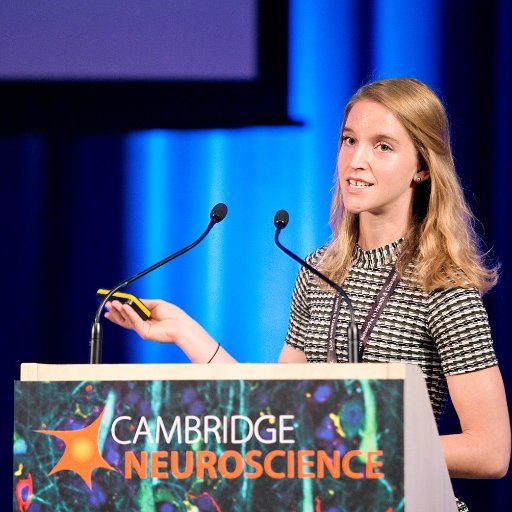
Lydia Hickman
@LydiaJHickman
Followers
539
Following
3K
Media
32
Statuses
760
Research Associate @mrccbu | interoception, cognition & mental health | Previously @UoB_SoP @OxExpPsy | (she/her)
Birmingham, England
Joined September 2018
How do people with mental health conditions experience bodily signals? 🧠🫀🫁 Our (@gabriel_mackie) new paper in eClinicalMedicine explores lived experiences and patient priorities for interoception research. 🧵1/n https://t.co/qAAGtEjPKk
1
8
20
However, if autistic individuals present parkinsonian symptoms due to their autistic traits alone, clinicians should incorporate this knowledge into diagnostic assessments to prevent misdiagnosis. 🧵10/n
0
0
0
Identifying the cause of the increased PD diagnosis prevalence in autism is important for the adaptation of diagnosis procedures. If autistic individuals are indeed more likely to develop PD, all stakeholders should be aware of this to ensure a prompt diagnosis. 🧵9/n
1
0
0
Finally, we consider other potential explanations for overlap between autism and PD, including potential biological mechanisms (dopamine? 🧠), as well as the contribution of antipsychotic medications in autism 💊. 🧵8/n
1
0
0
Separate research studies highlight similarities between autism and PD across both gross and fine motor function, as well as emotion expression and recognition, theory of mind ability and cognitive rigidity. Matched-groups studies are need to validate these conclusions. 🧵7/n
1
0
0
Given that PD diagnosis is primarily movement-based, if it is the case that autistic movement appears parkinsonian, this may facilitate autistic individuals meeting diagnostic criteria for PD. 🧵6/n
1
0
0
We suggest that movement differences in autism may shed light upon this question. In the case of bradykinesia, postural instability and gait differences (core diagnostic features of PD), differences in autism have been explicitly likened to that of PD. 🧵5/n
1
0
0
Why is this the case? Genetics studies link some PD risk genes to autism 🧬, but a significant polygenic overlap is not apparent, and first-degree relatives of autistic individuals don't have elevated PD diagnosis rates. So is this relationship driven by genetics alone? 🧵4/n
1
0
0
Conducting PD assessments in autistic groups also demonstrates high levels of PD traits. Starkstein et al (2015): 32% of test sample screened positive for parkinsonism via UPDRS. Geurts et al (2022): 17% and 33% positive screening via PSQ in Netherlands and US samples. 🧵3/n
1
0
0
A number of recent studies have evidenced elevated PD diagnosis rates in autism. E.g., Croen et al (2015): 0.93% PD prevalence in autistic sample vs 0.03% in non-autistic sample. Hand et al (2020): 6.6% in autistic sample vs 1.2% in non-autistic sample. 🧵2/n
1
0
0
My new paper with @Jennifer_L_Cook sets out potential reasons for high rates of Parkinson's disease (PD) diagnosis in the autistic population: https://t.co/FFyEtcM5e3
@mrccbu @TheCHBH 🧵1/n
1
3
9
On autism, movement, & Parkinson's (PD), important, free https://t.co/WpheioAbUw "If it is the case that older autistic individuals are sometimes falsely diagnosed with PD on the basis of outward appearances... the PD diagnosis procedure must be overhauled to guard against this"
0
3
7
"High rates of Parkinson’s Disease diagnosis in the autistic population: true co-occurrence or a product of overlapping traits?" https://t.co/XnFGOBYDu2 accepted for publication today. Well done @LydiaJHickman. @TheCHBH
sciety.org
Older autistic adult literature is sparse, and little is known about the aging autistic population. However, recent evidence suggests an increased prevalence of Parkinson’s Disease (PD) diagnosis in...
0
1
2
New article in @psychmag: What Louise Thompson’s Lucky reveals about the mind-body connection https://t.co/L26Rtz7QIB
bps.org.uk
Dr Lydia Hickman reviews Louise Thompson's book, 'Lucky: Learning to Live Again'.
0
1
2
What @LouiseAThompson’s Lucky reveals about the mind-body connection… @LydiaJHickman reviews Louise Thompson's book, 'Lucky: Learning to Live Again'. https://t.co/SZdQdt9Q3B
bps.org.uk
Dr Lydia Hickman reviews Louise Thompson's book, 'Lucky: Learning to Live Again'.
0
1
1
Breaking through the mind-body divide: patient priorities for interoception research This broad scoping study establishes new, transdiagnostic, patient-led priorities for the developing field of #interoception in #psychiatry
https://t.co/mtcBPAR6As
1
2
8
Hickman & Mackie et al report ten patient-led priorities for interoception research in psychiatry: https://t.co/FgHYK1pjWo
@LydiaJHickman @gabriel_mackie @camillalnord
0
2
6
🎉 New paper alert! 🧠 The velocity-curvature power law is one of the 'kinematic laws of nature' (Flash 2021), a 'fundamental law of human control' (Zago et al. 2016), and one of the 'kinematic regularities' (Frith & Frith 2023) thought to underlie all biological motion. 1/9
1
7
9
Patient priorities for interoception research, just out in Lancet @eClinicalMed 🧠🫁🫀 ⬇️⬇️⬇️ — the first pub from our @wellcometrust Mental Health Award Led by the brilliant @gabriel_mackie & @LydiaJHickman
🚨 New paper 🚨 How do people with mental health conditions experience bodily signals, and what are their priorities for interoceptive research? These questions are what @LydiaJHickman and my new paper in eClinicalMedicine tries to answer. 🧵 1/8 https://t.co/YVtQ1UsB3h
1
7
22
🚨 New paper 🚨 How do people with mental health conditions experience bodily signals, and what are their priorities for interoceptive research? These questions are what @LydiaJHickman and my new paper in eClinicalMedicine tries to answer. 🧵 1/8 https://t.co/YVtQ1UsB3h
1
6
15
A huge thank you to our contributors and co-authors @bethlongley @DrHannahSavage @EmilyBagley21 @HugoFleming_ @rachelcknight95 Isabel Lau @annalise_bw @DrSFink @camillalnord 🧵9/n
0
0
0













